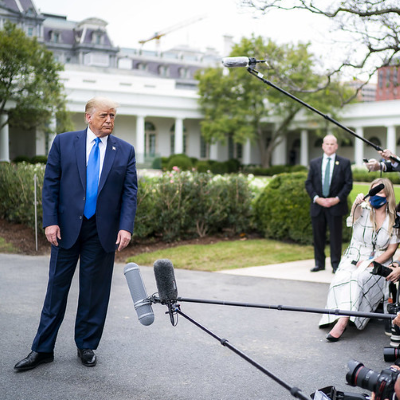flacaltenn
Diamond Member
We shouldn't ignore the drastic side effects and lack of security that has happened elsewhere in the world with "liberalizing" mail-in ballots. Even to the point of mailing them out unrequested -- like pizza coupons.
It's NOT a unique US experience and we ARE "slow learners". Other countries like the UK have reacted and tightened up security in matter of 5 or 8 years from awful and confidence-killing "unintended consequences".

 www.breitbart.com
www.breitbart.com
Mail-in or, in British parlance, postal voting on-demand was introduced by Labour prime minister Tony Blair in the 2000s, with one of the most notorious and egregious scandals involving its abuse breaking not long afterwards.
In 2005, Labour councillors Shafaq Ahmed, Shah Jahan, Ayaz Khan, Mohammed Islam, Muhammed Afzal, and Mohammed Kaziwere found guilty of electoral fraud after it was established that a “vote-forging factory” had been set up in a disused warehouse in Aston, Birmingham, to swing local elections to their party with postal ballots.
The newspaper described how “Bags of postal votes, which were clearly identifiable, were wheeled through the streets in sacks by temporary staff or carted to the count in plastic bags dumped in the boot of a car” ahead of election results which were “little short of astounding”, with turnout up 100 per cent in one area and an astonishing 350 per cent in another.
Ruling on the scandal, which had to be brought before the authorities by private individuals under the Representation of the People Act, Richard Mawrey QC said the scale of the fraud “would disgrace a banana republic” and criticised the police, who had had multiple allegations put before them, for their “Olympian detachment” from the proceedings.
Some changes were made to the postal voting in 2006 in the wake of the scandal, but an international investigation by a committee of the Council of Europe’s Parliamentary Assembly (PACE) found that it was still “childishly simple to register bogus voters on the voters’ list” in 2007, and that the system provided “the anonymity to carry out fraud without detection”.
Postal vote fraud remains in an issue in Britain to this day, with Conservative parliamentarian and former government minister Steve Baker MP writing that constituents “would be shocked if they knew the extent of corrupt election practices and voter fraud” as recently as December 2019.
“There is widespread abuse of postal votes. In one case, private data held by a third party for legitimate purposes was used to apply for postal votes, and then intercepted before electors had a chance to complete them. The victims would not make a formal complaint as they feared retribution,” he revealed, indicating that many scandals do not see the light of day.
Birmingham and Tower Hamlets judge Richard Mawrey QC, for his part, weighed in on the possibility of mail-in voting fraud in the United States ahead of the November 3rd election, concluding that it was very much a risk.
“Even the pro-Biden press in America admits that the system is shambolic,” he wrote in an article for the Spectator, noting that in some states ballots are sent out without even having to be requested, and can be returned and counted after the polls have closed — not permissible in the United Kingdom.
--------------------------------
In general -- very FEW European countries have managed to screw up elections with low security "postal balloting". They just WONT condone it like some of us have here.

 www.foxnews.com
www.foxnews.com
A new report highlights the restrictive laws most European countries and other developed areas throughout the world have in regards to mail-in voting, contrasting highly permissive U.S. regulations, as the debate over the security of the practice ramps up ahead of the presidential election.
The report's analysis of these countries' voting laws, specifically on how restrictive their rules are on mail-in ballots, leads the study to conclude that the permissiveness of American laws toward widespread mail-in voting is rather unique in the developed world. It comes as most states in the U.S. have made some changes to loosen their absentee ballot rules, but Republicans in many cases are fighting back in the courts, arguing that such changes open up elections to potential fraud.
Among OECD countries besides the United States, the report states that 78% of the countries either do not allow mail-in ballots "for people living in the country" or require a photo ID to get a mail-in ballot. In the EU, 85% of countries either bar mail-in ballots for people not living abroad or require a photo ID for such a ballot, according to the report. And every European country that is not a member of the EU has mail-in policies that fall into that category.
The report cites a number of cases of mail-in fraud that have happened in other countries that it says motivated these changes.
France, a country that does not allow mail-voting except for citizens living abroad, banned general mail voting in 1975 after a spate of fraud, the report says. The U.K., which has somewhat more permissive rules, saw six Labour Party members of the Birmingham City Council found guilty of vote fraud in 2005, according to The Telegraph.
Many, however, have argued that vote fraud by mail in the United States is exceedingly rare and that Americans should trust that an election conducted largely by mail will be secure and fair.
It's NOT a unique US experience and we ARE "slow learners". Other countries like the UK have reacted and tightened up security in matter of 5 or 8 years from awful and confidence-killing "unintended consequences".

'Safe and Secure'? Britain's Sordid History of Mail-in Voting Fraud
Claims of mail-in voting fraud in the U.S. elections remain disputed, but many such scandals have already been exposed in Britain.
Mail-in or, in British parlance, postal voting on-demand was introduced by Labour prime minister Tony Blair in the 2000s, with one of the most notorious and egregious scandals involving its abuse breaking not long afterwards.
In 2005, Labour councillors Shafaq Ahmed, Shah Jahan, Ayaz Khan, Mohammed Islam, Muhammed Afzal, and Mohammed Kaziwere found guilty of electoral fraud after it was established that a “vote-forging factory” had been set up in a disused warehouse in Aston, Birmingham, to swing local elections to their party with postal ballots.
The newspaper described how “Bags of postal votes, which were clearly identifiable, were wheeled through the streets in sacks by temporary staff or carted to the count in plastic bags dumped in the boot of a car” ahead of election results which were “little short of astounding”, with turnout up 100 per cent in one area and an astonishing 350 per cent in another.
Ruling on the scandal, which had to be brought before the authorities by private individuals under the Representation of the People Act, Richard Mawrey QC said the scale of the fraud “would disgrace a banana republic” and criticised the police, who had had multiple allegations put before them, for their “Olympian detachment” from the proceedings.
Some changes were made to the postal voting in 2006 in the wake of the scandal, but an international investigation by a committee of the Council of Europe’s Parliamentary Assembly (PACE) found that it was still “childishly simple to register bogus voters on the voters’ list” in 2007, and that the system provided “the anonymity to carry out fraud without detection”.
Postal vote fraud remains in an issue in Britain to this day, with Conservative parliamentarian and former government minister Steve Baker MP writing that constituents “would be shocked if they knew the extent of corrupt election practices and voter fraud” as recently as December 2019.
“There is widespread abuse of postal votes. In one case, private data held by a third party for legitimate purposes was used to apply for postal votes, and then intercepted before electors had a chance to complete them. The victims would not make a formal complaint as they feared retribution,” he revealed, indicating that many scandals do not see the light of day.
Birmingham and Tower Hamlets judge Richard Mawrey QC, for his part, weighed in on the possibility of mail-in voting fraud in the United States ahead of the November 3rd election, concluding that it was very much a risk.
“Even the pro-Biden press in America admits that the system is shambolic,” he wrote in an article for the Spectator, noting that in some states ballots are sent out without even having to be requested, and can be returned and counted after the polls have closed — not permissible in the United Kingdom.
--------------------------------
In general -- very FEW European countries have managed to screw up elections with low security "postal balloting". They just WONT condone it like some of us have here.

Strict mail-in voting rules maintained by foreign nations, new report finds
The report examines voting laws in countries in the European Union (EU), non-EU states in Europe and members of the Organization for Economic Co-operation and Development (OECD) -- an international body consisting largely of developed and free countries throughout Europe, North America, Asia and...
A new report highlights the restrictive laws most European countries and other developed areas throughout the world have in regards to mail-in voting, contrasting highly permissive U.S. regulations, as the debate over the security of the practice ramps up ahead of the presidential election.
The report's analysis of these countries' voting laws, specifically on how restrictive their rules are on mail-in ballots, leads the study to conclude that the permissiveness of American laws toward widespread mail-in voting is rather unique in the developed world. It comes as most states in the U.S. have made some changes to loosen their absentee ballot rules, but Republicans in many cases are fighting back in the courts, arguing that such changes open up elections to potential fraud.
Among OECD countries besides the United States, the report states that 78% of the countries either do not allow mail-in ballots "for people living in the country" or require a photo ID to get a mail-in ballot. In the EU, 85% of countries either bar mail-in ballots for people not living abroad or require a photo ID for such a ballot, according to the report. And every European country that is not a member of the EU has mail-in policies that fall into that category.
The report cites a number of cases of mail-in fraud that have happened in other countries that it says motivated these changes.
France, a country that does not allow mail-voting except for citizens living abroad, banned general mail voting in 1975 after a spate of fraud, the report says. The U.K., which has somewhat more permissive rules, saw six Labour Party members of the Birmingham City Council found guilty of vote fraud in 2005, according to The Telegraph.
Many, however, have argued that vote fraud by mail in the United States is exceedingly rare and that Americans should trust that an election conducted largely by mail will be secure and fair.




